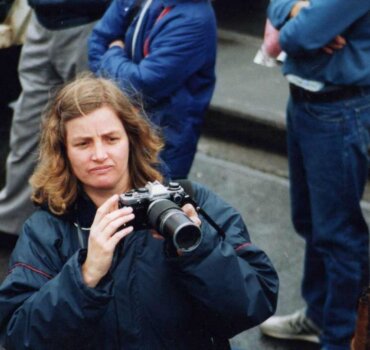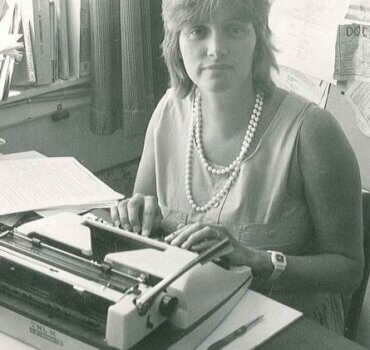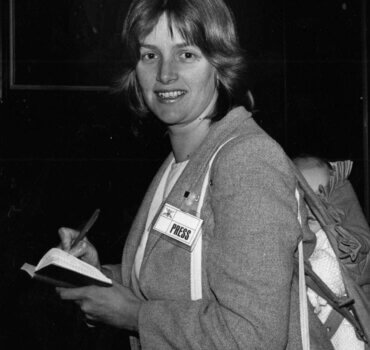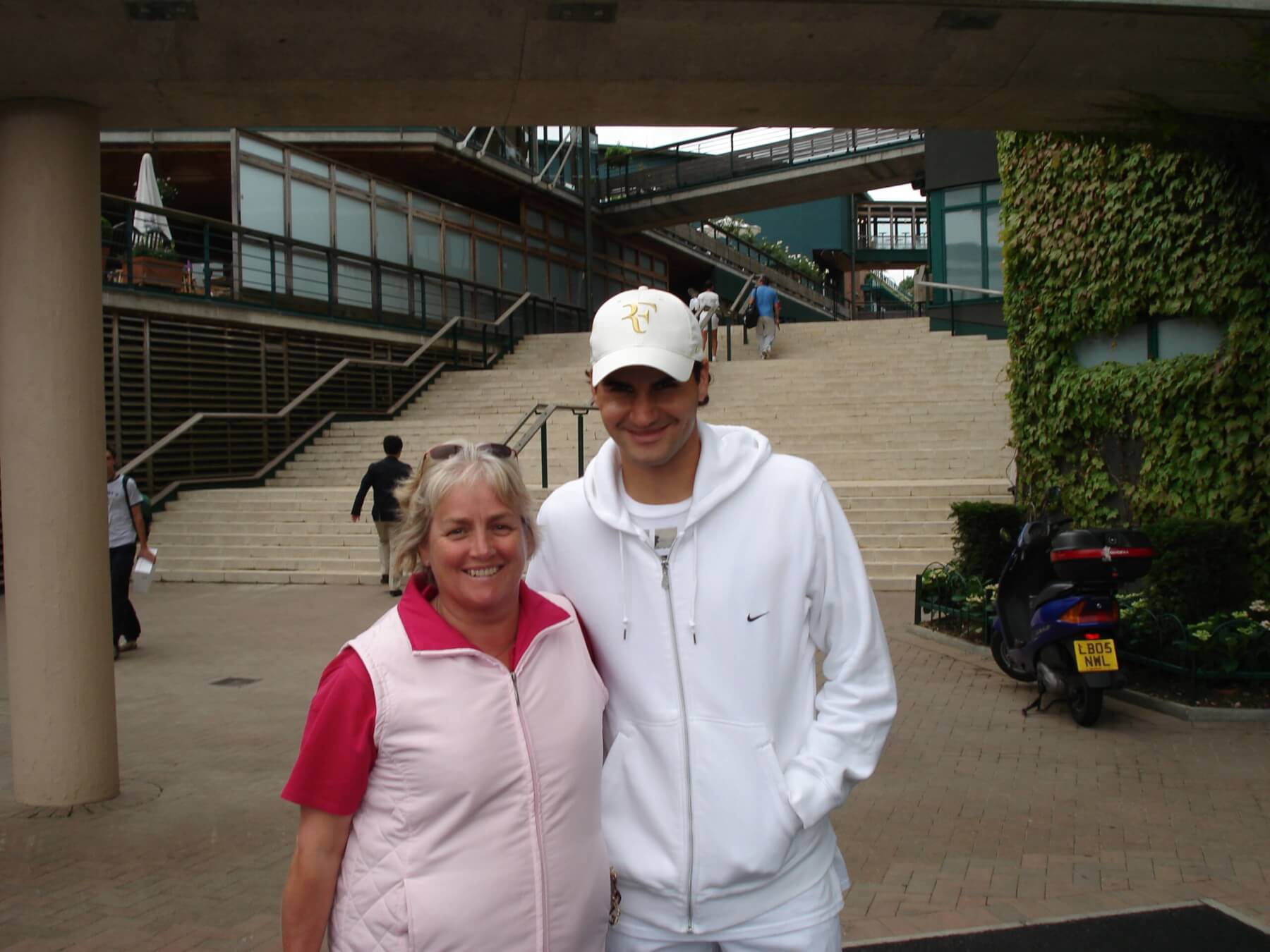- Mary Anne Gill on the job in Taumarunui.
- Mary Anne Gill at The Daily News in Taumarunui.
- Mary Anne Gill with her baby son in the backpack.
There have been many sporting highlights for me in a 40-year career as a journalist.
Being waterside at the Sydney Olympics when Rob Waddell won his rowing gold medal, Auckland taking the Ranfurly Shield on the road and bringing it to Te Kuiti to play King Country, questioning Tiger Woods at a NZ Open press conference, covering Wimbledon in 2008 and sitting in the audience when netball’s Silver Ferns Dream Team was announced at New Zealand Netball’s 75th anniversary in 1999.
I’ve also covered grassroots events – the 1992 Roller Mills tournament in Taumarunui when I was editor of the Ruapehu Press. There I met the great Bryan Williams – who came into the office to order one of the photos I took of his son Gavin in action.
I’ve covered every sport – from croquet through to bowls, squash, tennis, football, netball and rugby and interviewed dozens of youngsters for weekly secondary schools’ sports profiles. Some went on to become very famous, others did not – but I was always conscious that in many respects mine was the first media interview they had done – and in most cases would ever do – so the most important thing was to spell their name right and ensure that the clipping would be shared proudly among family members.
At that 1992 Roller Mills tournament, I chatted with the captain of Waikato Rangers. His name is spelt wrong in the tournament team photo and listing but I got it right in the paper. He went on to become an All Black centurion by which time everyone knew it was Keven, not Kevin, Mealamu.
In my long career I do not once recall being told I was not welcome at a sporting event in a professional capacity.
So, I was astonished when The News was told we were not welcome at the Te Awamutu Rugby Sports and Recreation Club on Sunday night for the naming of the All Blacks.
Two players with Waipā connections – Cameron Roigard and Luke Jacobson – were looking likely selections so we wanted to be there.
General manager Linda Sprangers said: “the event is by invitation only and it is currently fully subscribed”.
Interestingly, Waipā mayor Susan O’Regan, who has a long association with the club – her sons and daughter have all represented Te Awamutu in sport – was also not invited. Looking at photos from the event, the so-called Te Awamutu old boys’ network seemed there in abundance.
This was not grassroots, as Sky TV kept saying. This was elitism at its finest, announced exclusively on the pay channel to an “invite only” crowd at the rugby club where All Blacks coach Ian Foster played more than 100 games for Te Awamutu Old Boys.
Fortunately for The News readers, we do not give up, and on Monday my colleague Jeremy Smith caught up with new All Black Cameron Roigard in Cambridge.
The two went to the same school and so they had a lot to talk about as they caught up in the Town Square.
Now that’s grassroots.
- Mary Anne Gill was twice New Zealand’s sports reporter of the year and this year a finalist in the community newspaper journalist of the year.












